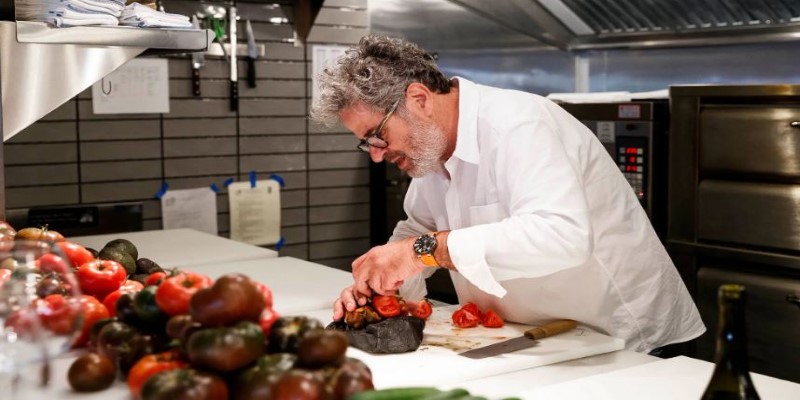Flavors of Israel: A Guide to Traditional and Modern Israeli Dishes
Israeli cuisine is a fascinating fusion of flavors, cultures, and traditions, offering a culinary journey that reflects the country’s diverse heritage. From savory street food to hearty home-cooked meals, the best Israeli food brings together influences from the Middle East, North Africa, Europe, and even parts of Asia. Whether you're a food enthusiast eager to explore new tastes or simply curious about this unique cuisine, Israeli food is sure to captivate your senses.
Every meal tells a story of immigrants, historical ties, and a deep sense of attachment to local produce. This guide offers insights into the iconic dishes, their ways of preparation, and what lies at the root of these cultural monuments, providing a complete picture of the world of Israeli culinary treasures.
The Foundations of Israeli Cuisine
The strength of Israeli cuisine is drawn from its multicultural background. Immigrants from Europe, the Middle East, and North Africa brought with them their traditional recipes, mixed them with local ingredients, and thus created a colorful mosaic. Many dishes depend on seasonal, fresh produce like ripe tomatoes, crunchy cucumbers, and fragrant herbs. Another feature is that it reflects the Mediterranean diet, focusing on olive oil, grains, and legumes.
One of the roots of Isrofcuisine is simplicity. It celebrates not needing more than a few ingredients but offering bold, deep flavors. The two staples on the global scale, hummus and falafel, can be traced to simple chickpeas that pack a punch from the addition of tahini, garlic, and spices. It epitomizes Israeli cooking at heart: maximizing the use of available items while being mindful of tradition and innovation.
Iconic Dishes and Their Significance
Israeli food is famous for its flavorful variety, and among those dishes, some have gained global popularity. From the lot, hummus and falafel stand out to symbolize a nation's food identity. A puree made from chickpeas, tahini, garlic, lemon juice, and hummus is served with warm pita bread drenched in olive oil and proves to be an entire meal. Its creamy texture and tangy flavor make it a staple that many people enjoy during breakfast or as a midday snack.

Falafel, crispy fried balls made from ground chickpeas or fava beans, has become synonymous with Israeli street food. Traditionally served in pita or laffa bread and accompanied by fresh salads and tahini sauce, falafel offers a delightful combination of textures and flavors. Despite its simple ingredients, falafel is deeply satisfying and represents the resourcefulness of Middle Eastern cooking, making the most of the available ingredients.
Another iconic dish is shakshuka, a hearty meal of poached eggs cooked in a spiced tomato and pepper sauce. Its origins are believed to be North African, but it has become a quintessential Israeli breakfast. Shakshuka is more than just a meal—it’s an experience, often shared among family and friends directly from the pan in which it’s cooked.
In the realm of bread, challah and pita reign supreme. Challah, a braided egg bread traditionally eaten during the Sabbath, is rich and slightly sweet. At the same time, pita serves as the perfect vehicle for scooping up dips like hummus or wrapping street food delights such as falafel and shawarma.
The Role of Street Food in Israeli Culture
Street food is an integral part of daily life in Israel, offering locals and visitors a quick, flavorful bite while on the go. Markets such as Mahane Yehuda in Jerusalem and Levinsky Market in Tel Aviv are culinary havens bustling with vendors offering freshly prepared delicacies. These markets provide an authentic glimpse into the vibrant and communal nature of Israeli food culture.
One street food classic is sabich, a sandwich stuffed with fried eggplant, hard-boiled eggs, pickles, and a medley of fresh vegetables, topped with tahini and amba, a tangy mango sauce. Sabich, like many other dishes, reflects the fusion of cultural influences—in this case, from Iraqi Jews who introduced the concept of combining these ingredients into one hearty sandwich.
Shawarma, thinly sliced seasoned meat typically made from chicken, turkey, or lamb, is another popular choice. It's roasted on a vertical spit and shaved off to order, served in pita with an assortment of toppings. The combination of savory meat, fresh salads, and creamy tahini sauce creates an explosion of flavor in every bite.
Even snacks like bourekas and flaky pastries filled with cheese, potatoes, or spinach reflect the multicultural makeup of Israeli cuisine. These pastries, originally brought by Jewish immigrants from Turkey, have become a beloved snack, enjoyed alongside a cup of strong black coffee or mint tea.
Modern Interpretations and Culinary Trends
While traditional dishes remain deeply rooted in Israeli food culture, the culinary scene has embraced modern interpretations and global influences. Contemporary Israeli chefs, such as Eyal Shani and Yotam Ottolenghi, have gained international acclaim for their inventive approaches to classic recipes. These chefs often elevate familiar dishes like hummus or shakshuka with unique twists, such as adding roasted vegetables, exotic spices, or artisanal bread.

In Tel Aviv, a city known for its dynamic culinary scene, restaurants serve deconstructed falafel, gourmet shawarma, and upscale versions of traditional desserts. Vegan and vegetarian adaptations of Israeli food are also on the rise, catering to the growing demand for plant-based diets. Ingredients like tahini, chickpeas, and fresh vegetables lend themselves well to these modern diets, allowing chefs to craft dishes that are both nutritious and flavorful.
This blend of tradition and modernity ensures that Israeli cuisine remains vibrant and ever-evolving. Chefs continue to honor their culinary roots while embracing creativity, resulting in a rich and dynamic food culture that appeals to both locals and international visitors.
Conclusion
Israeli cuisine is more than just food; it reflects the country’s rich history, diverse culture, and vibrant people. From the creamy simplicity of hummus to the bold flavors of shakshuka, the best Israeli food offers a delightful sensory experience. Whether enjoyed at bustling markets, home kitchens, or trendy restaurants, each dish tells a unique story. Exploring Israeli cuisine not only satisfies your taste buds but also provides a deeper connection to the nation’s heritage and the colorful spirit of its people.











